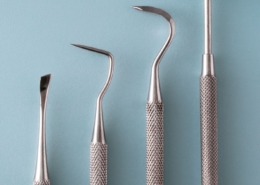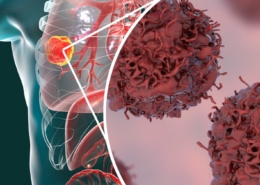Researchers from the Universities of Edinburgh, Aberdeen and Birmingham will set up and run the clinical trial, called EPIC2, which will involve 100 women with endometriosis in Edinburgh and London. They will investigate whether a drug called dichloroacetate is an effective pain management treatment for those with the condition.
Endometriosis affects 1.5 million women and those assigned female at birth in the UK. It occurs when tissue similar to the lining of the womb grows elsewhere in the body, most commonly in the pelvic area. This tissue (known as endometriosis lesions) bleeds during a period but has nowhere to go – and causes inflammation, pain and the formation of scar tissue.
Earlier research, funded by Wellbeing of Women, discovered that cells from the pelvic wall of women with endometriosis behave differently compared to those without the condition. Researchers from the University of Edinburgh found that these cells produce higher amounts of lactate, a chemical generated by the body to give us energy when there is a lack of oxygen. This creates an environment that supports the development and growth of endometriosis.











